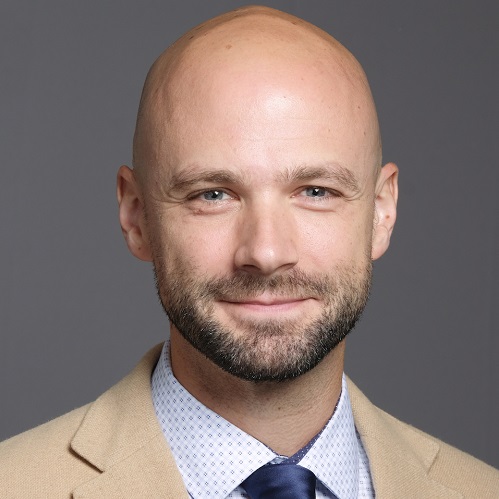Commentary on Malachi 4:1-2a
On August 28, 1963, Reverend Doctor Martin Luther King Jr. gave one of the most profound speeches in twentieth century political discourse in the United States of America (USA). He proclaimed:
Now is the time to make real the promises of democracy. Now is the time to rise from the dark and desolate valley of segregation to the sunlit path of racial justice. Now is the time to lift our nation from the quicksands of racial injustice to the solid rock of brotherhood. Now is the time to make justice a reality for all of God’s children.1
As I read Malachi 4:1-2, I was reminded of Rev. Dr. King’s words. (Feel free to use verse 2b, because as any good farmer knows, you can’t leave the calves out!)
We are now in a season in which Rev. Dr. King’s vision has not yet been achieved, and the victories of the Civil Rights Movement are under attack. Within this season of unfulfilled visions of justice, we also find ourselves approaching the end of the liturgical year. This passage falls on the Sunday prior to Christ the King or Reign of Christ Sunday. In this time of the church year, we are anticipating the social implications of God’s ongoing ministry in the world today. (Note the bold. Take care to not impose Jesus on this Hebrew scripture in ways that appropriate it as a Christian document or denigrate or exclude the Jewish faith or our Jewish siblings.)
As Rev. Dr. King’s vision has been whitewashed over the years to soften his radical stance and to fit a white political agenda, so too the greatest challenge in effectively proclaiming this passage is communicating its radical nature without appropriating it into a powerless vision of the status quo.
Malachi 3 grounds the vision of Malachi 4:1-2 in a concrete political discourse. There we find that the wicked who are overthrown in this passage are the religious and political elites who shortchange God and prey on the least powerful, all the while accruing wealth and power. There we also find that those whom God loves are the laborers, the widows, the orphans, and the foreigners (3:5).
This biblical context is crucial for determining the nature of this vision. We live in a time of a multitude of revolutionary movements, contesting the future of our society and the church. Without what can be interpreted in Malachi 3 as a preferential option for those most vulnerable to being targeted by oppressive systems, Malachi 4:1-2 is malleable to any theological or political conviction. If divorced from this broader context, it could even be appropriated as a theological vision of when God “make[s] America great again.” However, if treated with integrity, Malachi 4:1-2 is a radical vision of an altered religious, social, and political order in which “the least of these” are deeply valued by God.
Who are the laborers, widows, orphans, and foreigners for whom God seeks justice? Laborers then had limited or no economic security and stability. In the present day, living conditions for the working poor are horrendous and further intensified by high inflation. Widows and orphans not only reflect a potential economic need, but in the Hebrew scriptures these categories often speak to persons who are vulnerable, having been severed from a secure position in the dominant social order. In the present day, this can speak to the status of women and children in our society as well as those who are widow-ed or orphan-ed by our society for not fitting neatly into dominant normativities of sexuality, gender, or ability. While the foreigner denoted cultural and ethnic difference, we live in a now racialized world in which race is interwoven with cultural and ethnic diversity as a means of exploiting and excluding.
One of the challenges of preaching this passage then is the fact that it envisions a dismantling and a disruption of the status quo that, if effectively translated to our context today, will necessarily catch us up in it. For those who are socially privileged along lines of race, gender, class, sexuality, or ability, the dominating identities into which our society continually forms us (white, male, upper or middle class, CIS-gender, heterosexual, able-bodied, et cetera) and the systems that facilitate these formations are part of what is being burned.
This passage envisions an intense dismantling and decentering through which space is joyfully and abundantly made in the very center of religious communities and society for those who have too long been held at the margins. The healing warmth of the sun of justice is rising! The calves are dancing! The economic, social, and political realities will be so altered that those who suffer oppression today will encounter sustained and accessible healing, and they will be nurtured, playfully full of energy and excitement as they live their lives. What changes are activists and advocates working toward in your community and in our broader society? Where can you locate the small inbreakings of justice through which we can witness glimpses of healing, abundance, and the unfettered joy of life for those targeted by systems of violence?
In your sermon itself, appropriately engage minoritized voices that help you and your congregation envision a more just world and a different way of being in society. Listen deeply. Learn. Let your sermon be shaped by this, and look for ways beyond your sermon that you can incorporate the vision of this passage in the programming, polity, and personnel that help shape your community of faith and broader civic context.
Rev. Dr. King’s vision and this passage in Malachi are expressions of unfulfilled hope for justice. How are you and your community working to bring this hope to reality? Celebrate that which is being done. Name that which remains undone—and repent if needed. Move forward in solidarity and mutuality with attention to who is in the center.
Notes
- Martin Luther King, Jr. “I have a dream” August 28, 1963. https://www.npr.org/2010/01/18/122701268/i-have-a-dream-speech-in-its-entirety (accessed on September 1, 2022).


November 13, 2022